Warhammer books to read after you play Vermintide
If Vermintide 2 has made you curious about the Warhammer World, hit up the library with these recommendations.
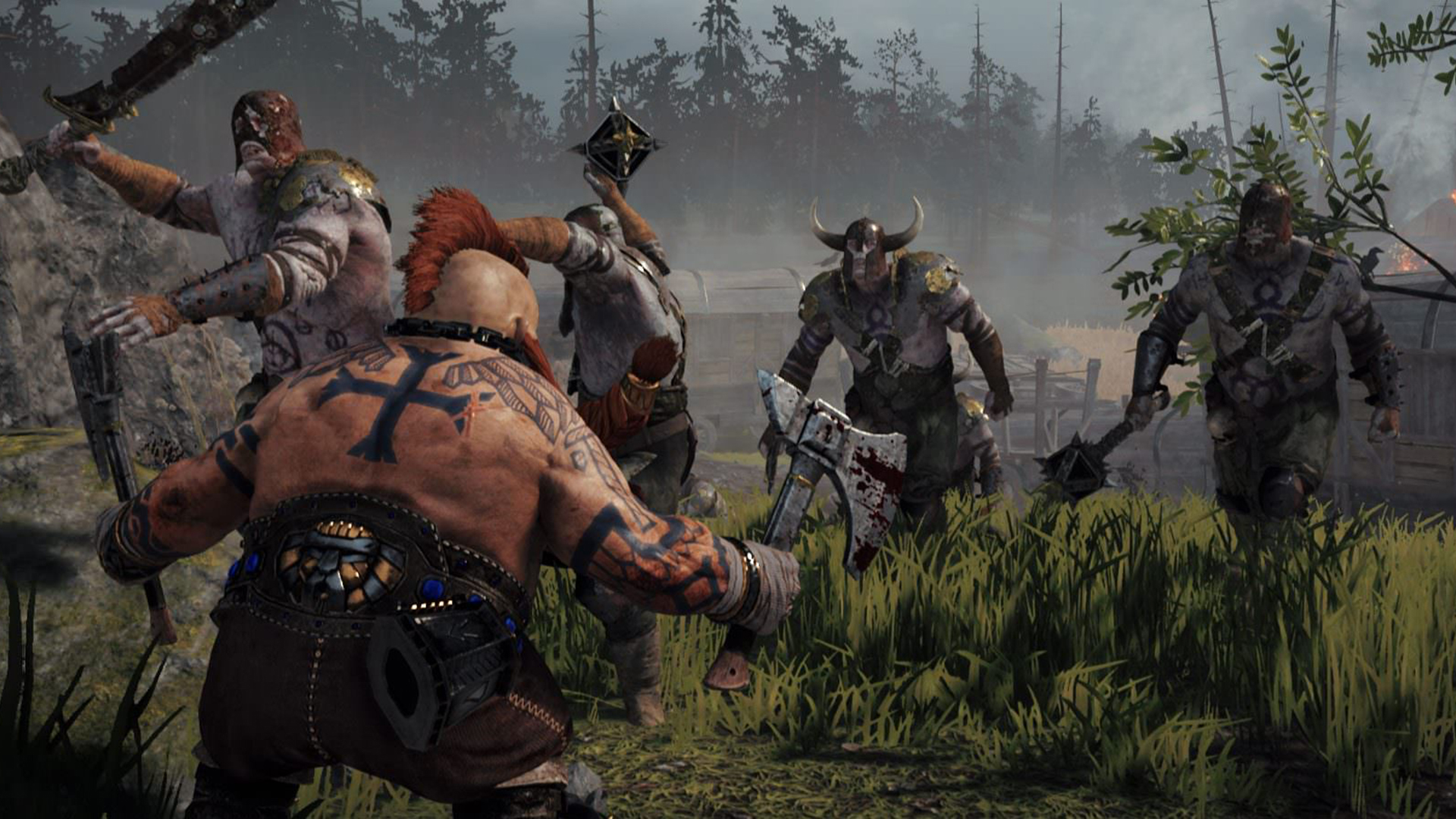
We're spoiled for choice when it comes to Warhammer experts on the PC Gamer staff. As one of definitely the top three local Warhammer nerds it's my job to help you find your way deeper into the Old World if Vermintide has given you an appetite for its particular variety of dark fantasy.
One of the thing's that's great about Vermintide 2 is that you don't need to know what a poisoned wind globadier or a Clan Moulder packmaster is to play it—someone will just shout "Hookrat!" and you know to look out for one of those rat jerks who tries to grab you with a pole. But there's plenty of references to the wider world of Warhammer in there to make it feel like you really are part of a strange fantasy land—so much so that when I look out the fortress window at the Empire I wish I could climb down there and wander off into it.
Until somebody finally bites the bullet and makes the singleplayer open-world Warhammer RPG of my dreams, reading the books is the next best thing. But which of the vast variety of them should you check out?
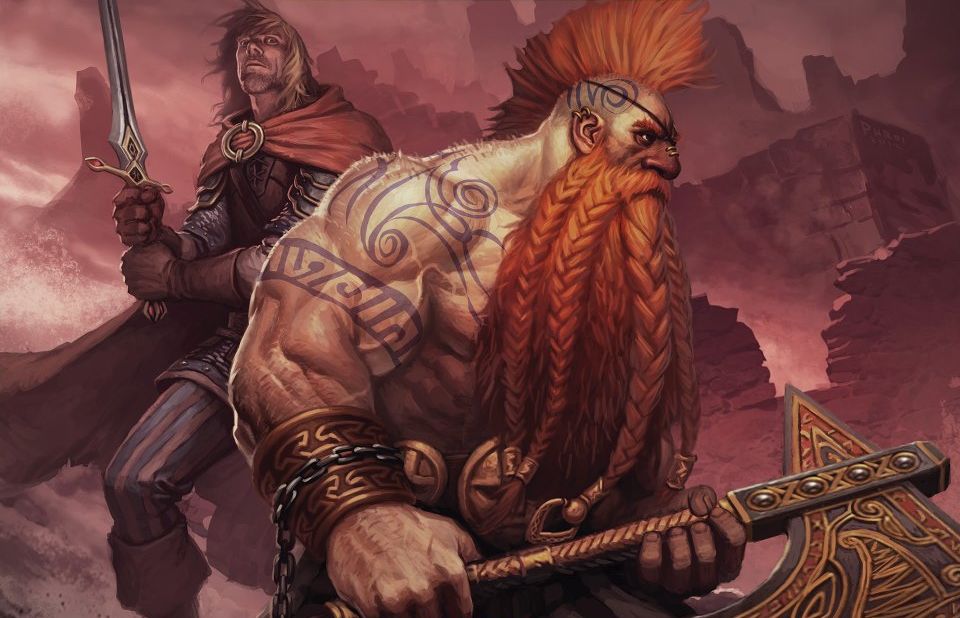
If you like Bardin, especially when he's a Slayer
Bardin Gorekkson is a Warhammer dwarf through and through, in that he knows how to hold a grudge, enjoys a drunken singalong, sounds like he's from Yorkshire, and responds to shame by shaving his head and joining a death cult.
The Slayers are dwarfs who've done something so dishonorable the only way to atone is to find a noble death in battle, and the iconic dwarf Slayer is Gotrek Gurnisson, star of a series of short stories and later novels. The worst Slayer in history, he's seeking an epic end, but too hard to die and too stubborn to quit. Co-star of the Gotrek stories is a "manling" poet named Felix whose job it is to record Gotrek's doom. Classic odd couple.
Part of what makes Warhammer interesting is the way it takes relatively low-key or gritty fantasy characters and locations and jams them together with epic high fantasy from the other end of the spectrum. The story of a poet forced to accompany the world's most unkillable dwarf as he throws himself against bigger and bigger foes is a perfect example.
Gotrek and Felix work best in picaresque short stories in collections like Trollslayer, by the duo's original creator Bill King, and Gotrek and Felix: The Anthology, which is by various authors and taken from different parts of their timeline. Gotrek and Felix don't work quite as well in novel-length tales but if you want to try one of those Skavenslayer follows directly from Trollslayer and is the most Vermintide of the bunch.
The biggest gaming news, reviews and hardware deals
Keep up to date with the most important stories and the best deals, as picked by the PC Gamer team.
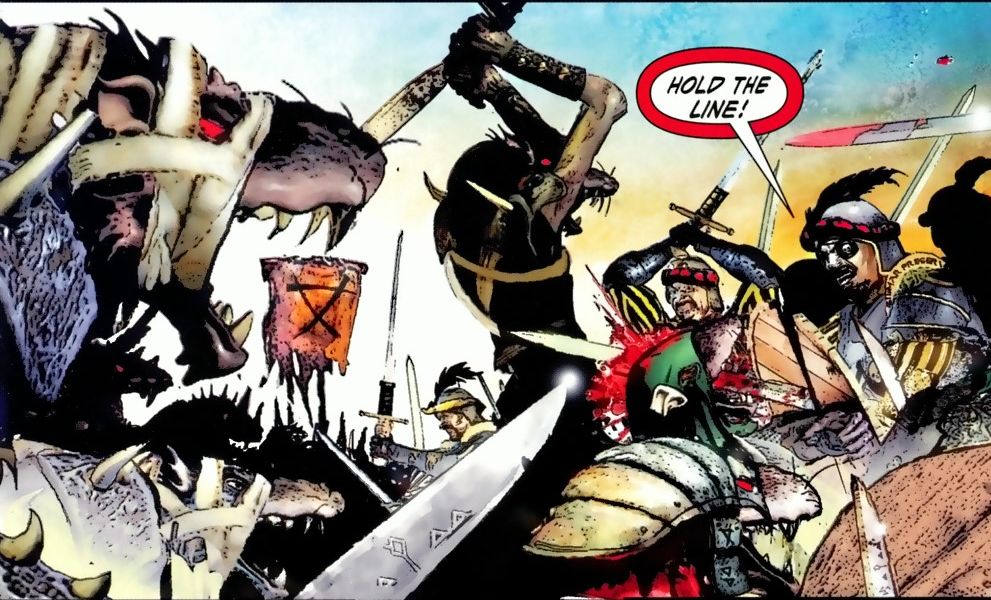
If you like the Skaven, because who doesn't like cannibal rats?
The best place to start with skaven is The Loathsome Ratmen and All Their Vile Kin by Mitchel Scanlon. Written in-character as a scholarly text by an Imperial academic, it explains things like skaven physiology and the differences between their various clans with plenty of fusty digressions and flavorsome art. Good luck finding it at a decent price though, maybe check the library for that one.
If it's novels you want the author to look for is C L Werner, who has written more books about skaven than is healthy. A standalone to start with is Vermintide, which the games borrow their name from although they're not actually connected beyond both being about hordes of skaven doing very bad things. Written under his pseudonym Bruno Lee, it's another example of the way Warhammer contrasts grounded fantasy with the over-the-top variety—it begins with court politics and an investigation into a museum theft and climaxes with a gyrocopter battle in the sky.
The best of the Warhammer comics is Crown of Destruction, which also deals with skaven. It's written by former PC Gamer editor Kieron Gillen and has art by Dwayne Harris, who draws everyone so they look appropriately like miniatures on a tabletop in the mid-shots, though I'm not so sure about the effect in close-ups. Over the course of four issues it escalates nicely, turning into a three-way conflict between skaven, an Imperial army, and the undead. It's also quite funny, off-setting the grimness with black comedy like the best Warhammer fiction does.
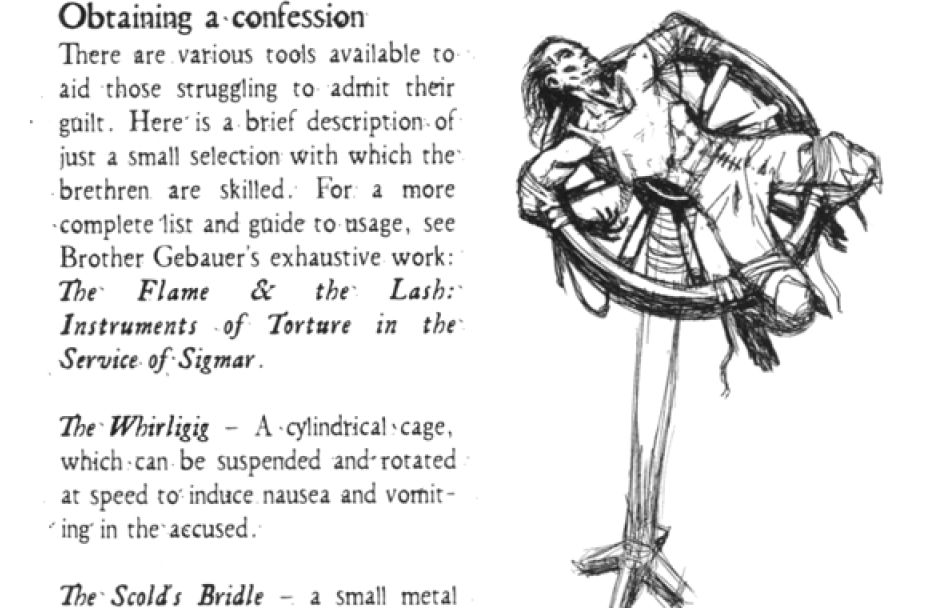
If you like Saltzpyre and his rants about heretics
The Witch Hunter's Handbook is another book written in-character like The Loathsome Ratmen and All Their Vile Kin, and likewise it's now out-of-print and overpriced, but still worth checking libraries for. Written by Darius Hinks, it's a Warhammer version of medieval witchcraft treatise the Malleus Maleficarum. The Witch Hunter's Handbook covers the finer details of what it's like being a Templar of the Order of Sigmar including sections on swordplay, how to tell the many varieties of witch apart, and how to put the question to them with tools like the Whirligig, the Scold's Bridle, and the Heretic's Fork. With the Sigmar's Blessing free DLC you can get a trinket version of the Witch Hunter's Handbook in the first Vermintide, and carry it into battle on your belt.
On the fiction side C L Werner is our guy again, with a whole trilogy about a witch hunter named Matthias Thulmann. Like Saltzpyre he's basically Vincent Price when he's angry, and he foils the plots of cultists and sorcerers with help from a filthy mercenary sidekick called Streng.
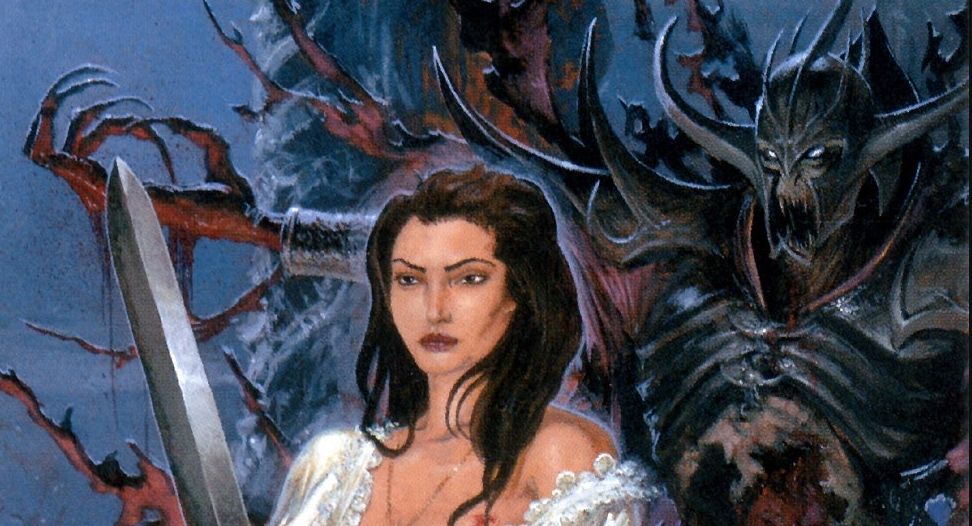
If you just want to read a real good book
The best of the Warhammer books unfortunately doesn't feature any hordes of skaven, but that doesn't mean it's not relevant to Vermintide. Drachenfels by Kim Newman (writing under the pseudonym Jack Yeovil) provided the setting for the first game's DLC of the same name, and in Vermintide 2 Lohner references its protagonist when discussing the vampire who stayed at his inn but whose name he can't remember. That's Genevieve, from a series that are the best of the Warhammer books.
Drachenfels is a story about putting on a play, though the play's being performed in a haunted castle and one of the cast is undead. It's like Singin' in the Rain reimagined as gothic fantasy. A later book in the series, Beasts in Velvet, has new protagonists who are on the hunt for a serial killer in the city of Altdorf. It's the closest thing to Terry Pratchett's City Watch books you'll get outside the Discworld. Hardly anyone just goes on a quest in Warhammer (except in Warhammer Quest), and the Genevieve stories instead borrow their plot structures from other genres, then give them a veneer of dark fantasy as though Warhammer's an Instagram filter that adds grime, cults, rats, and weird British jokes to whatever you run through it.
There are plenty more good Warhammer books and short stories (anything by James Wallis is a good pick, as are the stories about a Sherlock Holmes analogue named Zavant) and certainly a few worth skipping as well, but that's more than enough to get you started. There's always the best Warhammer 40,000 books to move on to next.

Jody's first computer was a Commodore 64, so he remembers having to use a code wheel to play Pool of Radiance. A former music journalist who interviewed everyone from Giorgio Moroder to Trent Reznor, Jody also co-hosted Australia's first radio show about videogames, Zed Games. He's written for Rock Paper Shotgun, The Big Issue, GamesRadar, Zam, Glixel, Five Out of Ten Magazine, and Playboy.com, whose cheques with the bunny logo made for fun conversations at the bank. Jody's first article for PC Gamer was about the audio of Alien Isolation, published in 2015, and since then he's written about why Silent Hill belongs on PC, why Recettear: An Item Shop's Tale is the best fantasy shopkeeper tycoon game, and how weird Lost Ark can get. Jody edited PC Gamer Indie from 2017 to 2018, and he eventually lived up to his promise to play every Warhammer videogame.

